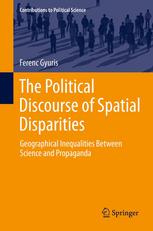

Most ebook files are in PDF format, so you can easily read them using various software such as Foxit Reader or directly on the Google Chrome browser.
Some ebook files are released by publishers in other formats such as .awz, .mobi, .epub, .fb2, etc. You may need to install specific software to read these formats on mobile/PC, such as Calibre.
Please read the tutorial at this link: https://ebookbell.com/faq
We offer FREE conversion to the popular formats you request; however, this may take some time. Therefore, right after payment, please email us, and we will try to provide the service as quickly as possible.
For some exceptional file formats or broken links (if any), please refrain from opening any disputes. Instead, email us first, and we will try to assist within a maximum of 6 hours.
EbookBell Team

4.3
38 reviewsThis work aims to provide unique insights into the multidisciplinary research on spatial disparities from an unconventional point of view. It breaks with the conventional narrative that tends to interpret this theoretical tradition as a series of factual contributions to a better understanding of the issue. Instead, related theories are investigated in their political, economic, and social contexts, and spatial disparity research is presented as a political discourse. It also reveals how the propagandistic problematization or de-problematization of geographical inequalities serves the substantiation of political goals, while taking advantage of the legitimate authority of science and the image of scientific objectivity. The book explains how the discourse has functioned from 19th century social physics over the Cold War period up to Marxist geographies of the current neoliberal age, and in what way and to what extent political considerations prevent related concepts producing ‘objective’ knowledge about the complex phenomenon of spatial inequalities.